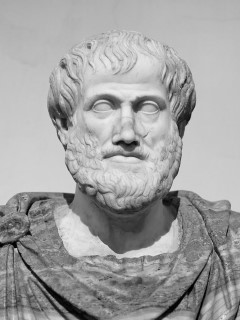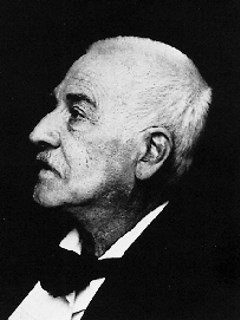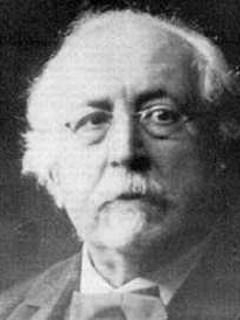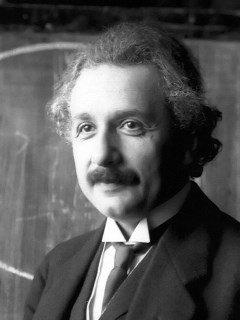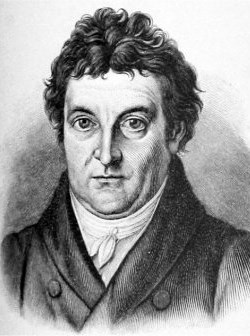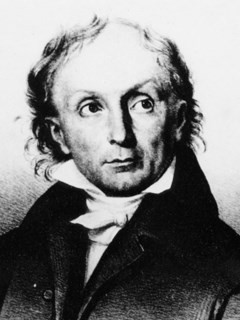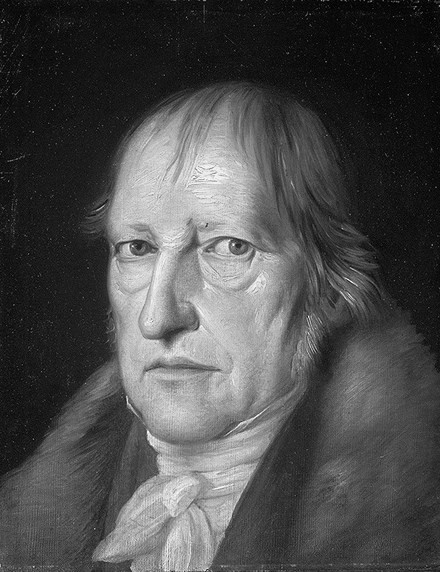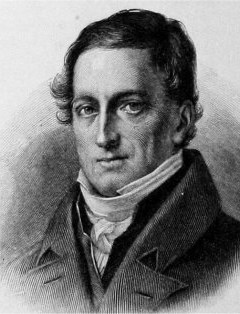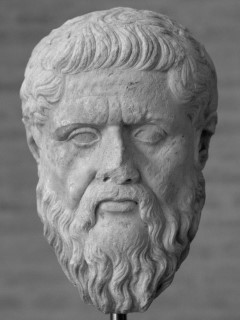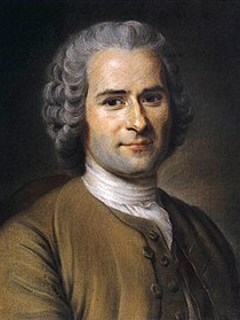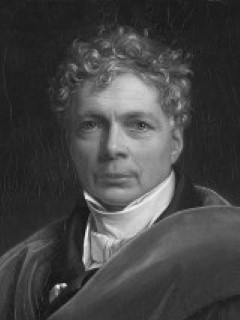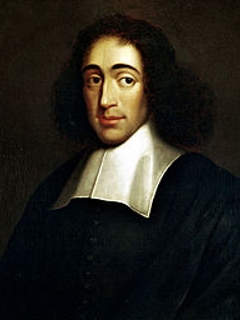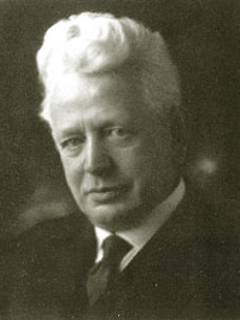
Married to
Toni CassirerCHILDREN
Anne Cassirer, Georg Cassirer, Heinrich Walter CassirerStudent(s)
Joachim Ritter, Léo Strauss, Edgar WindStudied with
Hermann Cohen, Paul Natorp, Friedrich Paulsen, Georg SimmelColleague(s)
Richard Hönigswald, Erwin Panofsky, Aby WarburgFriend(s)
Kurt GoldsteinErnst Cassirer
1874-1945
Endres, T., Müller, R. , Schneider, D., (2024). Kyoto in Davos: intercultural readings of the Cassirer-Heidegger debate, Brill, Leiden.
Rastier, F., (2023)., Saussure et Cassirer: de la création du structuralisme à la sémiotique des cultures, in , Saussure et l'épistémé structuraliste. Saussure und die strukturalistische Episteme, Berlin-New York, de Gruyter, pp. 253-276.
Truwant, S. , (2022). Cassirer and Heidegger in Davos: the philosophical arguments, Cambridge University Press, Cambridge.
Martin, E., Mrugalski, M., Flack, P., (2022). Neo-Kantianism as an entanglement of intellectual cultures in Central and Eastern Europe: Neukantianismus als Verflechtung von Wissenskulturen Mittel-und Osteuropas, sdvig press, Genève-Lausanne.
Matherne, S., (2021). Cassirer, Routledge, London-New York.
Lofts, S.G., (2021). Ernst Cassirer in Japanese philosophy. Journal of Transcendental Philosophy 2 (1), pp. 143-165.
Ometiță, M. , (2019). Hermeneutic violence and interpretive conflict: Heidegger vs. Cassirer on Kant. Studia Phaenomenologica 19, pp. 175-192.
Seitz, P. , (2019)., Kultur-übergreifende Gespräche, in G. Hartung & M. Herrgen (Hrsg.), Das Eigene & das Fremde, Dordrecht, Springer, pp. 93-100.
de Oliveira Ferreira, A., (2019). Origem, ontologia e política em Heidegger e Cassirer. Studia Heideggeriana 8, pp. 95-112.
Giovanelli, M. , (2018)., "Zwei Bedeutungen des Apriori": Hermann Cohens Unterscheidung zwischen metaphysischem und transzendentalem a priori und die Vorgeschichte des relativierten a priori, in C. Damböck (Hrsg.), Philosophie und Wissenschaft bei Hermann Cohen/Philosophy and Science in Hermann Cohen, Dordrecht, Springer, pp. 177-203.
Rastier, F., (2018). Cassirer et la création du structuralisme. Acta Structuralica 1, pp. 29-51.
Van Vliet, M., (2018). Correspondance entre Warburg, Cassirer et Panofsky. Le problème de la survivance des symboles. Revue germanique internationale 28, pp. 69-86.
Möckel, C., (2018). Die Philosophie Ernst Cassirers: Vom Ausdrucks-und Symbolcharakter kultureller Lebensformen, Meiner, Hamburg.
Truwant, S. , (2018). From the critique of reason to a critique of culture: Cassirer's transformation of Kant's transcendental philosophy. Epoché 23 (1), pp. 85-104.
Katsur, I. , (2018). Gestalt psychology as a missing link in Ernst Cassirer's mythical symbolic form. Human Studies 41 (1), pp. 41-57.
Fichant, M. , (2018). Johann Heinrich Lambert, l'idée de l'architectonique comme philosophie première (Grundlehre). Les Cahiers Philosophiques de Strasbourg 44, pp. 11-34.
Luft, S., (2018)., Kulturphilosophie als "naturalistische" Transzendentalphilosophie und die Frage nach dem Ort der Kultur, in H. Busche, F. Hillebrandt, T. Heinze & F. Schäfer (Hrsg.), Kultur - interdisziplinäre Zugänge, Dordrecht, Springer, pp. 467-487.
J. Levine, E. , (2018). L'autre Weimar : le cercle de Warburg, une "école de Hambourg" ?. Revue germanique internationale 28, pp. 10-30.
Maigné, C., Rieber, A. , Trautmann-Waller, C., (2018). La Kulturwissenschaftliche Bibliothek Warburg comme laboratoire. Revue germanique internationale 28.
Geniusas, S., Nikulin, D., (2018). Productive imagination: its history, meaning and significance, Rowman & Littlefield, London.
Moynahan, G. B. , (2018)., The challenge of psychology in the development of Cohen's system of philosophy and the Marburg school project, in C. Damböck (ed.), Philosophie und Wissenschaft bei Hermann Cohen/Philosophy and Science in Hermann Cohen, Dordrecht, Springer, pp. 41-75.
Seidengart, J. , (2018)., The coordination of phenomena in scientific knowledge according to Hans Reichenbach: the case of Einstein's theory of relativity, in C. Damböck (ed.), Philosophie und Wissenschaft bei Hermann Cohen/Philosophy and Science in Hermann Cohen, Dordrecht, Springer, pp. 145-160.
Eckes, C. , (2018). Weyl's philosophy of physics: from apriorism to holism (1918-1927). Philosophia Scientiae 22 (2), pp. 163-184.
Sonesson, G., (2017). Beyond the "tragedy of culture": in-between epistemology and communication. The American Journal of Semiotics 33 (3-4), pp. 141-180.
Kreis, G. , Schauss, P., (2017). Cassirer and Rousseau: the problem of a universal principle of justice. Graduate Faculty Philosophy Journal 38 (2), pp. 267-287.
Kramer, E. , (2017). Cassirer as revolutionary: semiotics as embodied worldview: appreciating the other in ourselves. The American Journal of Semiotics 33 (3-4), pp. 233-332.
Lanigan, R.L., (2017). Cassirer on communicology: the symbolic forms of language, art, myth, and religion in cultural semiotics. The American Journal of Semiotics 33 (3-4), pp. 135-140.
(2017). Cassirer on communicology. The American Journal of Semiotics 33 (3-4).
Martinez, J., (2017). Cassirer's "violent inner tensions of culture": a cultural phenomenology of ethics, freedom and the mythology of peace. The American Journal of Semiotics 33 (3-4), pp. 373-397.
Xia, Y. , (2017). Cassirer's symbolic forms in application: new symbolization of new thought in the language of online communication. The American Journal of Semiotics 33 (3-4), pp. 427-444.
Dhombres, J. , (2017)., Commentary to part 3: the space of sciences, in F. Masi (ed.), The changing faces of space, Dordrecht, Springer, pp. 255-256.
Lanigan, R.L., (2017). Ernst Cassirer's theory and application of communicology: from Husserl via Bühler to Jakobson. The American Journal of Semiotics 33 (3-4), pp. 181-231.
Arnett, R.C., (2017). Levinas's rhetorical demand: the unending obligation of communication ethics, Southern Illinois University Press, Carbondale, Ill.
Soeffner, H.-G., (2017)., Mythen – Metamorphosen – Mixturen, in G. Betz, R. Hitzler, A. Niederbacher & L. Schäfer (Hrsg.), Hybride Events, Dordrecht, Springer, pp. 77-93.
Connolly, M., (2017). Paulo Freire and Ernst Cassirer: mythic and superstitious consciousness in contemporary academic culture. The American Journal of Semiotics 33 (3-4), pp. 357-372.
Craig, T. D. , (2017). Shelter on the mountain of god: Ernst Cassirer and the religious institution of empire. The American Journal of Semiotics 33 (3-4), pp. 399-425.
Laino, L. , (2017)., The conditions of possibility of scientific experience: Cassirer's interpretation of the theory of relativity, in F. Masi (ed.), The changing faces of space, Dordrecht, Springer, pp. 235-254.
Van Vliet, M., (2016). Art et langage chez Ernst Cassirer: morphologie et/ou structuralisme?. Images re-vues Hors-série 5, pp. 1-22.
Mormann, T. , (2016)., Carnap's Aufbau in the Weimar context, in C. Damböck (ed.), Influences on the Aufbau, Dordrecht, Springer, pp. 115-136.
Ferrari, M., (2016)., Cassirer, Schlick und der Neukantianismus – Philosophische Streitfragen im Kontext, in M. Neuber (Hrsg.), Husserl, Cassirer, Schlick, Dordrecht, Springer, pp. 85-106.
Giovanelli, M. , (2016)., Das Problem in ein Postulat verwandeln: Cassirer und Einsteins Unterscheidung von konstruktiven und Prinzipien-Theorien, in M. Neuber (Hrsg.), Husserl, Cassirer, Schlick, Dordrecht, Springer, pp. 123-158.
Lassègue, , (2016). Ernst Cassirer: Du transcendantal au sémiotique, Vrin, Paris.
Bisanz, E. , Cunningham, S. , (2016)., Habit as a law of mind: a Peircean approach to habit in cultural and mental phenomena, in M. Anderson (ed.), Consensus on Peirce's concept of habit, Dordrecht, Springer, pp. 401-419.
Lomonaco, F. , (2016)., Historiographical language and temporality in Ernst Cassirer, in F. Santoianni (ed.), The concept of time in early twentieth-century philosophy, Dordrecht, Springer, pp. 129-135.
Neuber, M. , (2016). Husserl, Cassirer, Schlick: "Wissenschaftliche Philosophie" im Spannungsfeld von Phänomenologie, NeuKantianismus und logischem Empirismus, Springer, Dordrecht.
(2016)., Johann Amos Comenius versus Edmund Husserl und seine Schüler: ein Versuch der Gegenüberstellung, in W. Goris (Hrsg.), Gewalt sei ferne den Dingen!, Dordrecht, Springer, pp. 221-236.
Carbone, G., (2016)., Kant's antinomies concerning the world problem starting from Cassirer-Heidegger's debate in Davos (1929), in A. Tymieniecka & P. Trutty-Coohill (eds.), The cosmos and the creative imagination, Dordrecht, Springer, pp. 265-274.
Watin-Augouard, J., (2016). Le sens du sensible: La phénoménologie husserlienne à l'épreuve de sa critique par Ernst Cassirer. Annales de phénoménologie 15, pp. 65-82.
Přibáň, J. , (2016)., On legal symbolism in symbolic legislation: a systems theoretical perspective, in B. Van Klink, B. Van Beers & L. Poort (eds.), Symbolic legislation theory and developments in biolaw, Dordrecht, Springer, pp. 105-121.
Couto, A. , (2016)., Purity in concepts: defending the social sciences, in C. Damböck (ed.), Influences on the Aufbau, Dordrecht, Springer, pp. 257-266.
Pollok, A. , (2016). Significant formation: an intersubjective approach to aesthetic experience in Cassirer and Langer. Graduate Faculty Philosophy Journal 37 (1), pp. 71-95.
Biagioli, F. , (2016). Space, number, and geometry from Helmholtz to Cassirer, Springer, Dordrecht.
Möckel, C., (2016)., Zum Verhältnis von Philosophie und Wissenschaft bei Ernst Cassirer, in M. Neuber (Hrsg.), Husserl, Cassirer, Schlick, Dordrecht, Springer, pp. 107-122.
Martell, T. , (2015). Cassirer and Husserl on the phenomenology of perception. Studia Phaenomenologica 15, pp. 413-431.
Sánchez Madrid, N., (2015). Review of E. Cassirer, Rousseau, Kant, Goethe. Dianoia: anuario de filosofía 60 (75), pp. 171-175.
Mnich, R., (2015)., Einige Bemerkungen über Ernst Cassirers Rezeption in Rußland, in J. Giel (Hrsg.), Ernst Cassirer zwischen Mythos und Wissenschaft, Wrocław, Polskie Forum Filozoficzne, pp. 163-192.
Giel, J., (2015). Ernst Cassirer zwischen Mythos und Wissenschaft, Polskie Forum Filozoficzne, Wrocław.
Hartung, G., Gava, G. , Glock, H.-J., Büttner, K. , Lavagno, C., Beyer, C., Weichold, , (2015)., Strömungen der Sprachphilosophie, in N. Kompa (Hrsg.), Handbuch Sprachphilosophie, Dordrecht, Springer, pp. 29-89.
Micali, S., (2015)., Subjektive und objektive Zeit, in G. Hartung (Hrsg.), Mensch und Zeit, Dordrecht, Springer, pp. 185-203.
Parszutowicz, P. , (2015). The influence of Gestalt theory on Ernst Cassirer's phenomenology of symbolic forms. Dialogue and universalism 25 (4), pp. 87-99.
Luft, S., (2015). The Neo-kantian reader, Routledge, London-New York.
Luft, S., (2015). The space of culture: towards a neo-kantian philosophy of culture (Cohen, Natorp, and Cassirer), Oxford University Press, Oxford.
Lerch, H., (2014)., Anthropology as a foundation of cultural philosophy: The connection between human nature and culture by Helmuth Plessner and Ernst Cassirer, in J. De Mul (ed.), Plessner's philosophical anthropology, Amsterdam, Amsterdam University Press, pp. 195-210.
Hepp, R. , Kergel, S. , (2014)., Epistemologische Wachsamkeit, in G. Fröhlich & B. Rehbein (Hrsg.), Bourdieu-Handbuch, Stuttgart, Metzler, pp. 94-99.
Nairz-Wirth, E. , (2014)., Ernst Cassirer, in G. Fröhlich & B. Rehbein (Hrsg.), Bourdieu-Handbuch, Stuttgart, Metzler, pp. 29-32.
Rehbein, B. , Saalmann, G. , (2014)., Feld (champ), in G. Fröhlich & B. Rehbein (Hrsg.), Bourdieu-Handbuch, Stuttgart, Metzler, pp. 99-103.
Berek, M. , (2014)., Gedächtnis, Wissensvorrat und symbolische Form: Zwei Vorschläge aus Wissenssoziologie und Kulturphilosophie, in O. Dimbath & M. Heinlein (Hrsg.), Die Sozialität des Erinnerns, Dordrecht, Springer, pp. 39-58.
Sgueglia, G., (2014)., Ontopoiesis of eidolon and transcendental schematism in Cassirer and the concept of ontology in Meinong and Quine, in A. Tymieniecka (ed.), Phenomenology of space and time II, Dordrecht, Springer, pp. 179-192.
De Mul, J., (2014). Plessner's philosophical anthropology, Amsterdam University Press, Amsterdam.
Chang, H. , (2013). Cassirer, Benveniste, and Peirce on deictics and "pronominal" communication. Sign systems studies 41 (1), pp. 7-19.
van Vliet, M. , (2013). Éléments pour une anthropologie de l'homme en mouvement. Appareil 12, pp. n/a.
Parszutowicz, P. , (2013). Ernst Cassirer's idea of the critique of knowledge. Dialogue and universalism 23 (2), pp. 133-143.
Heis, J. , (2013)., Ernst Cassirer, Kurt Lewin, and Hans Reichenbach, in N. Milkov & V. Peckhaus (eds.), The Berlin group and the philosophy of logical empiricism, Dordrecht, Springer, pp. 67-94.
Inwood, M., (2013)., Hegel, Cassirer and Heidegger, in L. Herzog (ed.), Hegel's thought in Europe, Dordrecht, Springer, pp. 106-132.
Van Vliet, M., (2013). La forme selon Ernst Cassirer: De la morphologie au structuralisme, Presses universitaires de Rennes, Rennes.
(2013)., Martin Heidegger — a protestant Church father of the twentieth century?: the early Heidegger's phenomenology of religion and the crisis of Western culture, in L. K Bruun, G. Srensen, K. C. Lammers & G. Sørensen (eds.), European self-reflection between politics and religion, Basingstoke, Palgrave Macmillan, pp. 112-137.
Ferrari, M., (2013)., Materialien zu Moritz Schlicks intellektueller Biographie: Franz Erhardt und die Habilitation in Rostock, in E. Nemeth & F. Stadler (Hrsg.), Die europäische Wissenschaftsphilosophie und das Wiener Erbe, Dordrecht, Springer, pp. 85-104.
Sissel Hoel, A., van der Tuin, I., (2013). The ontological force of technicity: reading Cassirer and Simondon diffractively. Philosophy & Technology 26 (2), pp. 187-202.
Pickle, J. , (2013). The origins of the philosophy of symbolic forms: Kant, Hegel, and Cassirer, by Donald Phillip Verene. Graduate Faculty Philosophy Journal 34 (1), pp. 234-238.
Cassirer, E., (2013). The Warburg years (1919-1933): Essays on language, art, myth, and technology, ed. Calcagno Antonio, Lofts Steve G, Yale University Press, New Haven.
Lauschke, M. , (2012)., "Representation' and "presence" in the philosophy of Ernst Cassirer, in A. Sissel Hoel & I. Folkvord (eds.), Ernst Cassirer on form and technology, New York, Palgrave Macmillan, pp. 181-198.
Mormann, T. , (2012)., A virtual debate in exile: Cassirer and the Vienna circle after 1933, in R. Creath (ed.), Rudolf Carnap and the legacy of logical empiricism, Dordrecht, Springer, pp. 149-167.
Ferrari, M., (2012). Cassirer, Kant et l'Aufklärung. Revue germanique internationale 15, pp. 139-160.
Seidengart, J. , (2012)., Cassirer, reader, publisher, and interpreter of Leibniz's philosophy, in Y. Chin Drian & R. Krömer (eds.), New essays on Leibniz reception, Dordrecht, Springer, pp. 129-142.
Rosengren, M. , (2012)., Cave art as symbolic form, in A. Sissel Hoel & I. Folkvord (eds.), Ernst Cassirer on form and technology, New York, Palgrave Macmillan, pp. 214-232.
Neuber, M. , (2012). Die Grenzen des Revisionismus: Schlick, Cassirer und das "Raumproblem", Springer, Dordrecht.
Braga, J., (2012). Die symbolische Prägnanz des Bildes: Zu einer Kritik des Bildbegriffs nach der Philosophie Ernst Cassirers, Springer, Dordrecht.
Maigné, C., Rudolph, E., (2012). Ernst Cassirer. Revue germanique internationale 15.
Sissel Hoel, A., Folkvord, I., (2012). Ernst Cassirer on form and technology, Palgrave Macmillan, New York.
Calvo Ortega, F. , (2012). Ernst Cassirer y la filosofía del lenguaje. Daimon Revista Internacional de Filosofia 56, pp. 21-35.
Flasch, K., (2012). Ernst Cassirer, interprète de Nicolas de Cues. Revue germanique internationale 15, pp. 9-19.
Rudolph, E., (2012). Ernst Cassirer : Entre philosophie de l'histoire et historisme. Revue germanique internationale 15, pp. 53-61.
Mnich, R., (2012). Ėrnst Kassirer v Rossii. Issledovanija po istorii russkoj mysli 9, pp. 81-132.
Weiss, D. M. , (2012)., Failures of convergence, in A. Sissel Hoel & I. Folkvord (eds.), Ernst Cassirer on form and technology, New York, Palgrave Macmillan, pp. 233-257.
Eekert, G. , (2012)., Freiheit und Endlichkeit Cassirer, Heidegger und Kant, in R. Breeur & U. Melle (Hrsg.), Life, subjectivity and art, Dordrecht, Springer, pp. 195-216.
Maigné, C., (2012). Herbart paradoxal ? La lecture de Cassirer. Revue germanique internationale 15, pp. 63-76.
De Launay, M., (2012). Histoire et dialectique d'une forme symbolique: La réception par Cassirer des Noms divins de Hermann Usener. Revue germanique internationale 15, pp. 77-94.
Berner, C. , (2012). Histoire et interprétation : le principe "renaissance". Revue germanique internationale 15, pp. 21-35.
Sissel Hoel, A., Folkvord, I., (2012)., Introduction, in A. Sissel Hoel & I. Folkvord (eds.), Ernst Cassirer on form and technology, New York, Palgrave Macmillan, pp. 1-12.
Schlick, M., (2012)., Kritizistische oder empiristische Deutung der neuen Physik?, in E. Glassner & H. König-Porstner (Hrsg.), Moritz Schlick Rostock, Kiel, Wien, Dordrecht, Springer, pp. 217-247.
Kaegi, D., (2012). L'éthique non écrite de Cassirer. Revue germanique internationale 15, pp. 129-137.
van Vliet, M. , (2012). L'histoire de l'art : un paradigme pour penser la logique des sciences de la culture ?. Appareil 9, pp. n/a.
Iribarren, L. , (2012). Langage, mythe et philologie dans la Philosophie des formes symboliques d'Ernst Cassirer. Revue germanique internationale 15, pp. 95-114.
Kreis, G. , (2012). Le problème de l'historicité dans une philosophie des formes symboliques. Revue germanique internationale 15, pp. 37-52.
Willmann, F. , (2012)., Leibniz's metaphysics as an epistemological obstacle to the mathematization of nature: the view of a late 19th century neo-Kantian, Kurd Lasswitz, in Y. Chin Drian & R. Krömer (eds.), New essays on Leibniz reception, Dordrecht, Springer, pp. 25-39.
Glassner, E. , König-Porstner, H., (2012). Moritz Schlick Rostock, Kiel, Wien: Aufsätze, Beiträge, Rezensionen 1919–1925, Springer, Dordrecht.
Schlick, M., (2012)., Naturphilosophie, in E. Glassner & H. König-Porstner (Hrsg.), Moritz Schlick Rostock, Kiel, Wien, Dordrecht, Springer, pp. 587-742.
Chin Drian, Y. , Krömer, R. , (2012). New essays on Leibniz reception: in science and philosophy of science 1800-2000, Springer, Dordrecht.
Thouard, D. , (2012). Objectivation ou aliénation. Retour sur Cassirer, Simmel et la "tragédie de la culture". Revue germanique internationale 15, pp. 115-128.
Krois, J.M., Krois, J. , (2012). Symbolisme et phénomènes de base (Basisphänomene). Revue germanique internationale 15, pp. 161-174.
Lassègue, , (2012)., Technical activity as a symbolic form comparing money and language, in A. Sissel Hoel & I. Folkvord (eds.), Ernst Cassirer on form and technology, New York, Palgrave Macmillan, pp. 139-160.
Sissel Hoel, A., (2012)., Technics of thinking, in A. Sissel Hoel & I. Folkvord (eds.), Ernst Cassirer on form and technology, New York, Palgrave Macmillan, pp. 65-91.
Ruin, H., (2012)., Technology as destiny in Cassirer and Heidegger continuing the Davos debate, in A. Sissel Hoel & I. Folkvord (eds.), Ernst Cassirer on form and technology, New York, Palgrave Macmillan, pp. 113-138.
Folkvord, I., (2012)., The power of voice Ernst Cassirer and Bertolt Brecht on technology, expressivity and democracy, in A. Sissel Hoel & I. Folkvord (eds.), Ernst Cassirer on form and technology, New York, Palgrave Macmillan, pp. 161-180.
Stjernfelt, F., (2012)., The struggle of titans - Ernst Jünger and Ernst Cassirer: vitalist and enlightenment philosophies of technology in weimar Germany, in A. Sissel Hoel & I. Folkvord (eds.), Ernst Cassirer on form and technology, New York, Palgrave Macmillan, pp. 92-112.
Brock, S. , (2011). A resolute reading of Cassirer's anthropology. Synthese 179 (1), pp. 93-113.
Ikonen, S. , (2011). Cassirer's critique of culture. Synthese 179 (1), pp. 187-202.
Orth, E.W., (2011). Ernst Cassirer as cultural scientist. Synthese 179 (1), pp. 115-134.
Schwemmer, O. , (2011). Event and form: two themes in the davos-debate between Martin Heidegger and Ernst Cassirer. Synthese 179 (1), pp. 59-73.
Renz, U., (2011). From philosophy to criticism of myth: Cassirer's concept of myth. Synthese 179 (1), pp. 135-152.
Ziche, P. , (2011)., New forms of science and new sciences of form: on the non-mathematical reception of Grassmann's work, in S. Russ & J. Liesen (eds.), From Past to Future: Graßmann's Work in Context, Dordrecht, Springer, pp. 131-139.
Plümacher, , (2011). Philosophical research on cognition. Synthese 179 (1), pp. 153-167.
Schmitz-Rigal, C. , (2011). Science and art: physics as a symbolic formation. Synthese 179 (1), pp. 21-41.
Bokulich, A. , Bokulich, P. , (2011). Scientific structuralism, Springer, Dordrecht.
Stöltzner, M. , (2011)., Shifting the (non-relativized) a priori: Hans Reichenbach on causality and probability (1915–1932), in D. Dieks, S. Hartmann, T. Uebel, M. Weber & W. J. González (eds.), Explanation, prediction, and confirmation, Dordrecht, Springer, pp. 465-475.
Stjernfelt, F., (2011). Simple animals and complex biology: von Uexküll's two-fold influence on Cassirer's philosophy. Synthese 179 (1), pp. 169-186.
Bundgaard, P. F. , (2011). The grammar of aesthetic intuition: on Ernst Cassirer's concept of symbolic form in the visual arts. Synthese 179 (1), pp. 43-57.
Pedersen, E.O., Brock, S. , Festersen, C., Pedersen, S. , (2011). The philosophy of symbolic forms and the question of human culture. Synthese 179 (1).
Krois, J. , (2011). The priority of "symbolism" over language in Cassirer's philosophy. Synthese 179 (1), pp. 9-20.
Sissel Hoel, A., (2011). Thinking "difference" differently: Cassirer versus Derrida on symbolic mediation. Synthese 179 (1), pp. 75-91.
Mormann, T. , (2010)., Completions, constructions, and corollaries, in G. Hanna, H. N. Jahnke & H. Pulte (eds.), Explanation and proof in mathematics, Dordrecht, Springer, pp. 59-70.
Faivre d’Arcier, É. , (2010). De la question métaphysique à la création culturelle : métamorphoses du néokantisme d'Ernst Cassirer. , pp. 433-453 .
McDonnell, N. , van Tuinen, S. , (2010)., Introduction, in S. Van Tuinen & N. Mcdonnell (eds.), Deleuze and the fold, Dordrecht, Springer, pp. 1-24.
Mormann, T. , (2010)., The debate on Begriffstheorie between Cassirer, Marc-Wogau — and Schlick, in J. Manninen & F. Stadler (eds.), The Vienna circle in the Nordic countries, Dordrecht, Springer, pp. 167-180.
Sander, S. , (2009)., "Ästhetik" als Weise des Verstehens von Welt: Soziale und kulturelle Implikationen, in M. Sachs & S. Sander (Hrsg.), Die Permanenz des Ästhetischen, Wiesbaden, Verlag für Sozialwissenschaften, pp. 197-215.
Schmitz-Rigal, C. , (2009)., Ernst Cassirer: open constitution by functional a priori and symbolical structuring, in M. Bitbol, P. Kerszberg & J. Petitot (eds.), Constituting objectivity, Dordrecht, Springer, pp. 75-93.
Magnus, R. , Kull, K. , (2009). Review of Exemplifying umweltlehre through one's own life a biography of J. von Uexküll by F. Mildenberger,. Biosemiotics 2 (1), pp. 121-125.
Halawa, M.A., (2009). Karl Bühler's and Ernst Cassirer's semiotic conceptions of man. Verbum 31 (1-2), pp. 65-88.
Rieber, A. , (2009). L'art comme forme symbolique: Présupposés de la conception cassirérienne de la musique. Appareil 3, pp. n/a.
Brock, S. , (2009)., Old wine enriched in new bottles: Kantian flavors in Bohr's viewpoint of complementarity, in M. Bitbol, P. Kerszberg & J. Petitot (eds.), Constituting objectivity, Dordrecht, Springer, pp. 301-316.
Cei, A. , French, S., (2009)., On the transposition of the substantial into the functional: bringing Cassirer's philosophy of quantum mechanics into the twenty-first century, in M. Bitbol, P. Kerszberg & J. Petitot (eds.), Constituting objectivity, Dordrecht, Springer, pp. 95-115.
Robbins, S. E. , (2009). The cost of explicit memory. Phenomenology and the Cognitive Sciences 8 (1), pp. 33-66.
Switalla, B. , (2008)., Ernst Cassirer, in U. Sander, F. Von Gross & K. Hugger (Hrsg.), Handbuch Medienpädagogik, Wiesbaden, Verlag für Sozialwissenschaften, pp. 224-232.
Hartmann, F. , (2008)., Günther Anders, in U. Sander, F. Von Gross & K. Hugger (Hrsg.), Handbuch Medienpädagogik, Wiesbaden, Verlag für Sozialwissenschaften, pp. 211-216.
Bitbol, M., (2008)., Method and objectivity, in L. Soler, H. Sankey & P. Hoyningen-Huene (eds.), Rethinking scientific change and theory comparison, Dordrecht, Springer, pp. 291-296.
Larochelle, Y. , (2008). Opposition, démarcation et intimité: Réflexion éthique concernant la science et le mythe selon Popper et Cassirer. Revue philosophique de Louvain 106 (3), pp. 521-543.
Coskun, D. , (2007)., Cassirer and Heidegger: an intermezzo on magic mountain, in D. Coskun (ed.), Law as symbolic form, Dordrecht, Springer, pp. 57-85.
Coskun, D. , (2007)., Cassirer in exile an essay on the recovery of individual moral judgement, in D. Coskun (ed.), Law as symbolic form, Dordrecht, Springer, pp. 87-133.
Coskun, D. , (2007)., Cassirer's position in relation to neo-Kantian jurisprudence, in D. Coskun (ed.), Law as symbolic form, Dordrecht, Springer, pp. 299-337.
Coskun, D. , (2007)., Cassirer's position in relation to neo-Kantianism?, in D. Coskun (ed.), Law as symbolic form, Dordrecht, Springer, pp. 223-244.
Coskun, D. , (2007)., Cassirer's public engagement with weimar, in D. Coskun (ed.), Law as symbolic form, Dordrecht, Springer, pp. 27-56.
Orth, E.W., (2007). La subjectivité comme personne Cassirer sur les traces de Cohen. Revue germanique internationale 6, pp. 207-215.
Coskun, D. , (2007)., Law as a symbolic form, in D. Coskun (ed.), Law as symbolic form, Dordrecht, Springer, pp. 245-275.
Coskun, D. , (2007). Law as symbolic form: Ernst Cassirer and the anthropocentric view of law, Springer, Dordrecht.
Bienenstock, M. , (2007). Néokantisme et sciences morales. Revue germanique internationale 6.
Mróz, P., Kaluza, M., (2007)., Symbolical forms and their role in an anthropological analysis: Ernst Cassirer's conception of the human world, in A. Tymieniecka (ed.), Phenomenology of life from the animal soul to the human mind, Dordrecht, Springer, pp. 523-531.
Coskun, D. , (2007)., The linguistic turn of social contract theory, in D. Coskun (ed.), Law as symbolic form, Dordrecht, Springer, pp. 277-298.
Coskun, D. , (2007)., The politics of myth: Cassirer's pathology of the totalitarian state, in D. Coskun (ed.), Law as symbolic form, Dordrecht, Springer, pp. 135-172.
Osaka, N. , (2006)., Human anterior cingulate cortex and affective pain induced by mimic words: a functional magnetic resonance imaging study, in M. Mancia (ed.), Psychoanalysis and neuroscience, Dordrecht, Springer, pp. 257-268.
Mras, G. , (2006). Review of Massimo Ferrari, Ernst Cassirer — stationen einer philosophischen biographie. Vienna Circle Institute Yearbook , pp. 223-227.
Renz, U., (2005)., Critical idealism and the concept of culture: philosophy of culture in Hermann Cohen and Ernst Cassirer, in R. Munk (ed.), Hermann Cohen's critical idealism, Dordrecht, Springer, pp. 327-353.
Luft, S., (2004). A hermeneutic phenomenology of subjective and objective spirit: Husserl, Natorp, and Cassirer. The New Yearbook for Phenomenology and Phenomenological Philosophy 4, pp. 209-248.
Friedman, M., (2004). Carnap. Cassirer. Heidegger: Geteilte Wege, Fischer, Frankfurt am Main.
Krois, J. , (2004). Ernst Cassirer's philosophy of biology. Sign systems studies 32 (1-2), pp. 277-294.
Weber, A. , (2004). Mimesis and metaphor: the biosemiotic generation of meaning in Cassirer and Uexküll. Sign systems studies 32 (1-2), pp. 297-307.
Stolzenberg, J., (2004)., Poiesis: Zu Paul Natorps und Ernst Cassirers Begründung der Philosophie, in P. Merz-Benz & U. Renz (Hrsg.), Ethik oder Ästhetik?, Würzburg, Königshausen & Neumann, pp. 135-155.
van Heusden, B. , (2003)., Cassirers Ariadnefaden: Anthropologie und Semiotik, in H. J. Sandkühler & D. Pätzold (Hrsg.), Kultur und Symbol, Stuttgart, Metzler, pp. 111-147.
Plümacher, , (2003)., Der Mythos: Symbolsystem und Modus des Denkens, in H. J. Sandkühler & D. Pätzold (Hrsg.), Kultur und Symbol, Stuttgart, Metzler, pp. 175-190.
Jagersma, A. , (2003)., Der Status der Ethik in der Philosophie der symbolischen Formen, in H. J. Sandkühler & D. Pätzold (Hrsg.), Kultur und Symbol, Stuttgart, Metzler, pp. 276-296.
Plümacher, , (2003)., Die Erforschung des Geistes: Cassirers Auseinandersetzung mit der zeitgenössischen Psychologie, in H. J. Sandkühler & D. Pätzold (Hrsg.), Kultur und Symbol, Stuttgart, Metzler, pp. 85-110.
Wildgen, W. , (2003)., Die Sprache: Cassirers Auseinandersetzung mit der zeitgenössischen Sprachwissenschaft und Sprachtheorie, in H. J. Sandkühler & D. Pätzold (Hrsg.), Kultur und Symbol, Stuttgart, Metzler, pp. 148-174.
Pätzold, D. , (2003)., Die Technik: techne und poiesis, in H. J. Sandkühler & D. Pätzold (Hrsg.), Kultur und Symbol, Stuttgart, Metzler, pp. 211-219.
Berten, A. , (2003). Review of Ernst Cassirer, Liberté et forme. Revue philosophique de Louvain 101 (3), pp. 511-512.
Sandkühler, H.J., (2003)., Ernst Cassirers Philosophie der symbolischen Formen und die Krise der Selbsterkenntnis, in H. J. Sandkühler & D. Pätzold (Hrsg.), Kultur und Symbol, Stuttgart, Metzler, pp. 11-44.
Pätzold, D. , (2003)., Ernst Cassirers Philosophiebegriff, in H. J. Sandkühler & D. Pätzold (Hrsg.), Kultur und Symbol, Stuttgart, Metzler, pp. 45-69.
Yakira, E. , (2003)., From Kant to Leibniz?: Salomon Maimon and the question of predication, in G. Freudenthal (ed.), Salomon Maimon: rational dogmatist, empirical skeptic, Dordrecht, Springer, pp. 54-79.
Orth, E.W., (2003). Humanisme et science: leur rapport conflictuel au sein de la culture. Réflexions à partir de E. Husserl et E. Cassirer. Revue philosophique de Louvain 101 (4), pp. 551-567.
Sandkühler, H.J., (2003)., Keine Leerstelle bei Cassirer: Recht und Politik, in H. J. Sandkühler & D. Pätzold (Hrsg.), Kultur und Symbol, Stuttgart, Metzler, pp. 297-308.
Sandkühler, H.J., Pätzold, D. , (2003). Kultur und Symbol: ein Handbuch zur Philosophie Ernst Cassirers, Metzler, Stuttgart.
Freudenberger, S. , (2003)., Kulturphilosophie, Kulturwissenschaften, Naturwissenschaften, in H. J. Sandkühler & D. Pätzold (Hrsg.), Kultur und Symbol, Stuttgart, Metzler, pp. 259-271.
van Heusden, B. , (2003)., Kunst: die vierte symbolische Form?, in H. J. Sandkühler & D. Pätzold (Hrsg.), Kultur und Symbol, Stuttgart, Metzler, pp. 191-210.
Kurz, W. , (2003)., Sinnerfahrung im Zwischenfeld von Aktivität und Passivität: Überlegungen zum Phänomen des "Zwischen", in H. A. Kick & J. Taupitz (Hrsg.), Handeln und Unterlassen, Dordrecht, Springer, pp. 91-97.
Mormann, T. , (2003)., Synthetic geometry and Aufbau, in T. Bonk (ed.), Language, truth and knowledge, Dordrecht, Springer, pp. 45-64.
Rudolph, E., (2002)., Beyond realism: symbolism in the philosophy of science by Charles S. Peirce and Ernst Cassirer, in M. Ferrari & I. Stamatescu (eds.), Symbol and physical knowledge, Dordrecht, Springer, pp. 97-108.
Paetzold, H., (2002). Ernst Cassirer zur Einführung, Junius, Hamburg.
Lassègue, , (2002). Note sur l'actualité de la notion de forme symbolique. Methodos 2, pp. n/a.
Kassab, E. , (2002). Phenomenologies of culture and ethics: Ernst Cassirer, Alfred Schutz and the tasks of a philosophy of culture. Human Studies 25 (1), pp. 55-88.
Ferrari, M., (2002)., Sources for the history of the concept of symbol from Leibniz to Cassirer, in M. Ferrari & I. Stamatescu (eds.), Symbol and physical knowledge, Dordrecht, Springer, pp. 3-32.
Perru, O. , (2001). Review of Ernst Cassirer, Le problème de la connaissance dans la philosophie et la science des temps modernes. Vol. III. Revue philosophique de Louvain 99 (2), pp. 312-316.
Wildgen, W. , (2001)., Kurt Lewin and the rise of "cognitive sciences' in Germany: Cassirer, Bühler, Reichenbach, in L. Albertazzi (ed.), The dawn of cognitive science, Dordrecht, Springer, pp. 299-332.
Mormann, T. , Galavotti, M., Majer, U. , Wilholt, T. , Brandl, J.L., Dahms, H. , (2001)., Reviews, in , John von Neumann and the foundations of quantum physics, Dordrecht, Springer, pp. 329-360.
Friedman, M., (2000). A parting of the ways: Carnap, Cassirer, and Heidegger, Open Court, LaSalle, Ill.
Rudolph, E., (2000)., Metapher, Symbol, Begriff: Anregungen zu einem möglichen Dialog zwischen Hans Blumenberg und Ernst Cassirer, in R. Zimmermann (Hrsg.), Bildersprache verstehen, München, Fink, pp. 77-90.
Mormann, T. , (1999)., Critical idealism revisited: recent work on Cassirer's philosophy of science, in J. Woleński & E. Köhler (eds.), Alfred Tarski and the Vienna circle, Dordrecht, Springer, pp. 295-306.
Orth, E.W., (1999). Das Verhältnis von Emst Cassirer und Wilhelm Dilthey mit Blick auf Georg Misch. Dilthey-Jahrbuch 12, pp. 120-131.
Parrini, P. , (1999)., Immanenzgedanken and knowledge as unification: scientific philosophy and philosophy of science, in M. C. Galavotti & A. Pagnini (eds.), Experience, reality, and scientific explanation, Dordrecht, Springer, pp. 15-37.
Kirscher, G., (1998)., Eric Weil (1904–1977), in K. Ballestrem, V. Gerhardt, H. Ottmann & M. Thompson (Hrsg.), Politisches Denken Jahrbuch 1998, Stuttgart, Metzler, pp. 91-107.
Rinofner-Kreidl, S., (1998). Philosophie der Bedeutung: Bedeutung als Bestimmung und Bestimmbarkeit. eine Studie zu Frege, Husserl, Cassirer und Hönigswald. Grazer Philosophische Studien 54, pp. 211-229.
Focht, B., (1998)., Ponjatie simvoličeskoj formy i problema značenija v filosofii Ė[rnsta] Kassirera: Tezisy k dokladu (1927/28), in E. Cassirer, Izbrannoe, Moskva, Gardarika, pp. 761-764.
Losev, A., (1998)., Teorija mifičeskogo myšlenija u Ė[rnsta] Kassirera (1926/27), in E. Cassirer, Izbrannoe, Moskva, Gardarika, pp. 730-760.
Mormann, T. , (1997). Der begriffliche Aufbau der Wissenschaftlichen Wirklichkeit bei Cassirer. Logos (Neue Folge) 4, pp. 268-293.
Orth, E.W., (1997)., Ernst Cassirer, in L. Embree (ed.), Encyclopedia of phenomenology, Dordrecht-Boston-London, Kluwer, pp. 95-99.
Bermes, C., (1997). Philosophie der Bedeutung – Bedeutung als Bestimmung und Bestimmbarkeit: Eine Studie zu Frege, Husserl, Cassirer und Hönigswald, Königshausen & Neumann, Würzburg.
Smith, B., (1997)., The Neurath-Haller thesis: Austria and the rise of scientific philosophy, in K. Lehrer & J. C. Marek (eds.), Austrian philosophy past and present, Dordrecht, Kluwer, pp. 1-20.
Orth, E.W., (1996). Von der Erkenntnistheorie zur Kulturphilosophie: Studien zu Ernst Cassirers Philosophie der symbolischen Formen, Königshausen & Neumann, Würzburg.
Paul, J. , (1995). Des lumières contrastées : Cassirer, Horkheimer et Adorno. Revue germanique internationale - ancienne série 3, pp. 83-101.
Orth, E.W., (1995). Phänomenologie in Ernst Cassirers Philosophie der symbolischen Formen. Dialektik 1, pp. 47-60.
Lofts, S.G., (1994). Husserl, Heidegger, Cassirer: Trois philosophies de crise. Revue philosophique de Louvain 92 (4), pp. 570-584.
Rudolph, E., (1994)., Substance as function: Ernst Cassirer's interpretation of Leibniz as criticism of Kant, in E. Rudolph & I. Stamatescu (eds.), Philosophy, mathematics and modern physics, Dordrecht, Springer, pp. 235-242.
Watté, P. , (1993). Anthropologie et philosophie: un double retour au fondement. Revue philosophique de Louvain 91 (90), pp. 207-228.
Ilin Bayer, T. , (1993). Cassirer's normative philosophy. The Journal of Value Inquiry 27 (3-4), pp. 431-441.
Giovannangeli, D., (1993). Finitude et altérité dans l'esthétique transcendantale. Revue philosophique de Louvain 91 (89), pp. 14-30.
Formigari, L., Anquetit, M., (1992). Opérations mentales et théories sémantiques: le rôle du lantisme. Histoire Épistémologie Langage 14 (2), pp. 153-173.
Möckel, C., (1992). Symbolische Prägnanz - ein phänomenologischer Begriff?: Zum Verhältnis von Ernst Cassirers Philosophie der symbolischen Formen und Edmund Husserls Phänomenologie. Deutsche Zeitschrift für Philosophie 40, pp. 1050-1063.
Lofts, S.G., (1992). Une nouvelle approche de la philosophie d'Ernst Cassirer. Revue philosophique de Louvain 90 (88), pp. 523-538.
Orth, E.W., (1992)., Unity and plurality of cultures in the perspectives of Edmund Husserl and Ernst Cassirer, in D. P. Chattopadhyaya, L. Embree & J. N. Mohanty (eds.), Phenomenology and Indian philosophy, Albany, SUNY Press, pp. 233-246.
Landi, L. , (1991). Cassirer, Husserl e l'ermeneutica. Rivista di storia della filosofia 46, pp. 565-574.
Heidegger, M., Cassirer, E., (1991)., Davoser Disputation zwischen Ernst Cassirer und Martin Heidegger, in M. Heidegger, Kant und das Problem der Metaphysik, Frankfurt am Main, Klostermann, pp. 274-296.
Diemer, A., König, G., (1991)., Was ist Wissenschaft?, in A. Hermann & C. Schönbeck (Hrsg.), Technik und Wissenschaft, Dordrecht, Springer, pp. 3-28.
Orth, E.W., (1990). Philosophische Anthropologie als Erste Philosophie: Ein Vergleich zwischen Emst Cassirer und Helmuth Plessner. Dilthey-Jahrbuch 7, pp. 250-274.
Juffras, A. , (1989)., Cassirer's theory of history, in T. Z. Lavine & V. Tejera (eds.), History and anti-history in philosophy, Dordrecht, Springer, pp. 188-214.
Orth, E.W., (1989)., Einheit und Vielheit der Kulturen in der Sicht Edmund Husserls und Ernst Cassirers, in C. Jamme & O. Pöggeler (Hrsg.), Phänomenologie im Widerstreit, Frankfurt am Main, Suhrkamp, pp. 332-351.
Warland, G. , (1989). Review of Ernst Cassirer, L'idée de l'histoire. Revue philosophique de Louvain 87 (76), pp. 655-656.
Guillaume, A. , (1986). Review of Ernst Cassirer, Les systèmes post-Kantiens. Revue philosophique de Louvain 84 (64), pp. 528-529.
Cahoone, L. , (1986). The interpretation of Galilean science: Cassirer contrasted with Husserl and Heidegger. Studies in history and philosophy of sciences 17, pp. 1-21.
Fallend, K. , Handlbauer, B. , Kienreich, W. , Reichmayr, J. , Steiner, M. , (1985)., Psychoanalyse bis 1945, in M. G. Ash & U. Geuter (Hrsg.), Geschichte der deutschen Psychologie im 20. Jahrhundert, Wiesbaden, Verlag für Sozialwissenschaften, pp. 113-145.
Orth, E.W., (1985)., Zur Konzeption der Cassirerschen Philosophie der symbolischen Formen: Ein kritischer Kommentar, in E. Cassirer, Symbol, Technik, Sprache, Hamburg, Meiner, pp. 165-202.
Krois, J.M., (1983). Cassirer's unpublished critique of Heidegger. Philosophy & Rhetoric 16 (3), pp. 147-159.
Reix, A. , (1978). Review of Ernst Cassirer, Substance et fonction. Revue philosophique de Louvain 76 (32), pp. 504-505.
Stone, G. P. , Hagoel, L. , (1978)., Über den Umgang mit Motiven, in K. Hammerich & M. Klein (Hrsg.), Materialien zur Soziologie des Alltags, Wiesbaden, Verlag für Sozialwissenschaften, pp. 30-66.
Miller, J. F. , (1975)., Inherent conceptual limitations of the scientific method and scientific models for the study of religion, in P. Gross, W. Stark, B. Waldenfels, E. Schwanenberg, J. F. Miller & S. R. Friedman (eds.), Beiträge zur Wissenssoziologie, Beiträge zur Religionssoziologie / Contributions to the sociology of knowledge contributions to the sociology of religion, Wiesbaden, Verlag für Sozialwissenschaften, pp. 137-147.
Miller, J. F. , (1975). Inherent conceptual limitations of the scientific method and scientific models for the study of religion. Internationales Jahrbuch für Religionssoziologie 9, pp. 137-147.
Dove, K.R., (1973)., Hegel and the secularization hypothesis, in J. J. O'malley, K. W. . Algozin, H. P. Kainz & L. C. Rice (eds.), The legacy of Hegel, Dordrecht, Springer, pp. 144-155.
Rosenstein, L. , (1973). Some metaphysical problems of Cassirer's symbolic forms. Man and World 6 (3), pp. 304-321.
Ettelt, W., (1972). Der Mythos als symbolische Form: Zu Ernst Cassirers Mythosinterpretation. Philosophische Perspektiven: Ein Jahrbuch 4, pp. 59-73.
Ettelt, W., (1971). Der Substanzbegriff: Eine ontologische Untersuchung im Anschluß an Ernst Cassirer. Philosophische Perspektiven: Ein Jahrbuch 3, pp. 54-70.
Declève, H., (1969). Heidegger et Cassirer interprètes de Kant: Traduction et commentaire d'un document. Revue philosophique de Louvain 67 (96), pp. 517-545.
Seltzer, E. C. , (1969). The problem of objectivity: A study of objectivity reflected in a comparison of the philosophies of Ernst Cassirer, Jean Piaget and Edmund Husserl, New school for social research, New York.
Simmel, M. L. , (1968)., Kurt Goldstein 1878–1965, in M. L. Simmel (ed.), The reach of mind, Dordrecht, Springer, pp. 3-11.
Lugarini, L., (1967). Cassirer e il mito come problema filosofico. aut aut 101, pp. 7-26.
Kaufmann, F., (1966)., Das Verhältnis der Philosophie Cassirers zum Neukantianismus und zur Phänomenologie, in P. A. Schilpp (Hrsg.), Ernst Cassirer, Stuttgart, Kohlhammer, pp. 566-612.
(1966). Ernst Cassirer, Kohlhammer, Stuttgart.
Steinbeck, W., (1959). Review of E. Cassirer, Wesen und Wirkung des Symbolbegriffs. Zeitschrift für philosophische Forschung 13 (1), pp. 144-147.
De Toni, G., (1954). Cassirer da Bacone a Kant. aut aut 24, pp. 512-521.
Kaufmann, F., (1949)., Cassirer, Neo-Kantianism and phenomenology, in P. A. Schilpp (ed.), The philosophy of Ernst Cassirer, Evanston, pp. 801-854.
Pos, H., (1949)., Recollections of Ernst Cassirer, in P. A. Schilpp (ed.), The philosophy of Ernst Cassirer, Evanston, pp. 61-72.
Schilpp, P.A., (1949). The philosophy of Ernst Cassirer, Evanston.
Cassirer, T., (1948). Aus meinem Leben mit Ernst Cassirer, Leo Baeck Institute Archive, New York.
Kaufmann, F., (1947). Review of E. Cassirer, an essay on man. Philosophy and Phenomenological Research 8 (2), pp. 283-287.
Strauss, L., (1947). Review of E. Cassirer, the myth of the state. Social Research 14 (1), pp. 125-128.
Pos, H., (1939). Cassirer's symbolische theorie der taal. Algemeen Nederlands Tijdschrift voor Wijsbegeerte en Psychologie 32, pp. 307-313.
Klibansky, R., (1936). Philosophy & history: Essays presented to Ernst Cassirer, Clarendon Press, Oxford.
Koyré, A., (1935). Review of E. Cassirer, Die Platonische Renaissance in England und die Schule von Cambridge. Revue de l'histoire des religions 111, pp. 145-148.
Spaier, A., (1932). Review of E. Cassirer, Philosophie der symbolischen Formen. Recherches philosophiques 1, pp. 364-365.
Hamann, R., Cassirer, E., Geiger, M., Görland, A., Barthel, E.P., (1931). Ausprache (zu den Vorträgen von Cassirer und Görland). Zeitschrift für Ästhetik und allgemeine Kunstwissenschaft 25 (Beiheft), pp. 50-54.
Heidegger, M., (1928). Review of Ernst Cassirer, Philosophie des symbolischen Formen 2. Teil. Deutsche Literaturzeitung 49 (21), pp. 1000-1012.
Von Aster, E., (1913). Review of Ernst Cassirer. Das Erkenntnisproblem in der Philosophie und Wissenschaft der neueren Zeit. Zweite durchges. Auflage. Göttingische gelehrte Anzeigen 175, pp. 666-676.
Simonetta, L. , (). Le Rousseau de Cassirer. Astérion 18, pp. n/a.

